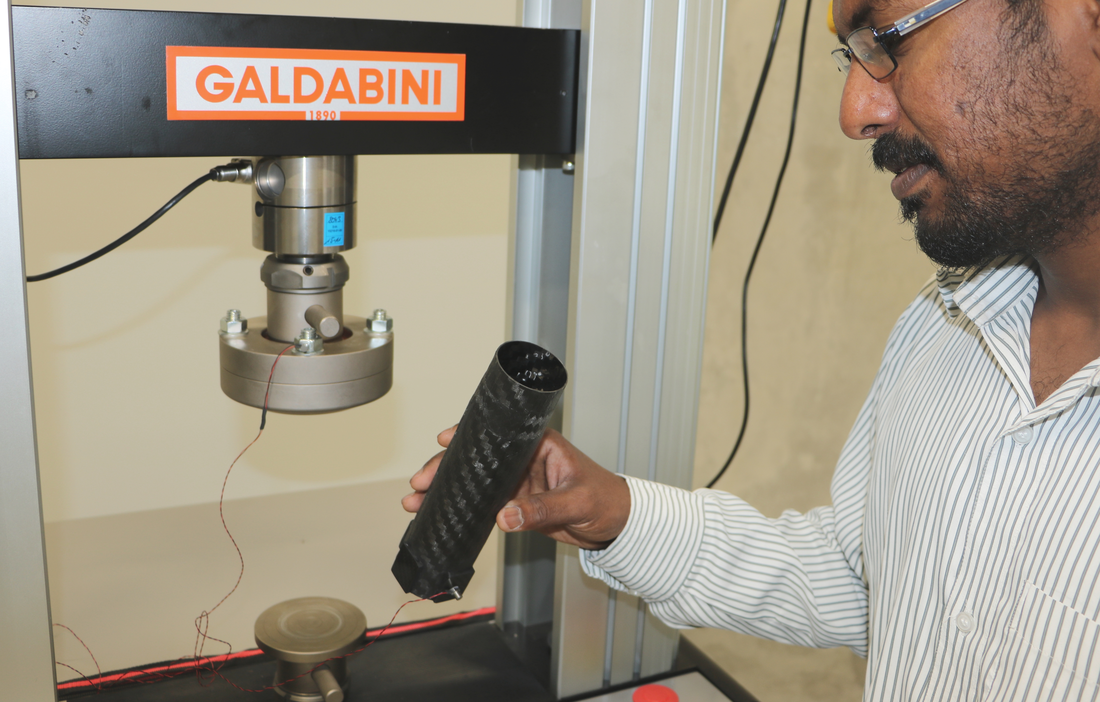Vibrations in the vehicle can have various causes, all of which have an equally disturbing effect on the sensor elements integrated in modern vehicles (e.g. acceleration and angular rate sensors). Therefore CARISSMA together with UFPR (Prof. Bavastri) deals with the technical possibilities of visco-elastic absorbers to reduce the disturbance.
The introduction of fiber-reinforced lightweight materials for improved structural monitoring methods (e.g. crash and damage detection) requires structure-borne sound measurements. However, these are usually subject to large external disturbances. The method via visco-elastic absorbers is to be combined with an active interference suppression methodology using filters. Furthermore, a novel test method for lightweight materials will be developed. In cooperation with a globally operating supplier of vehicle safety electronics, the relevant basic and application-oriented questions for use as a new technology in the vehicle will be investigated in detail.
What is the added value of the cooperation? The binational project team contributes complementary know-how to the project: on the one hand, the profound knowledge of Professor Carlos Bavastri (UFPR), who will scientifically supervise the Brazilian master students during their one-year stay at the THI, and on the other hand, the long-standing expertise of CARISSMA scientists in the development and validation of new methods for crash detection. The project is embedded in the ZIM-funded research project ESTSE (development of a characterization system and a test methodology for structure-borne sound applications).

